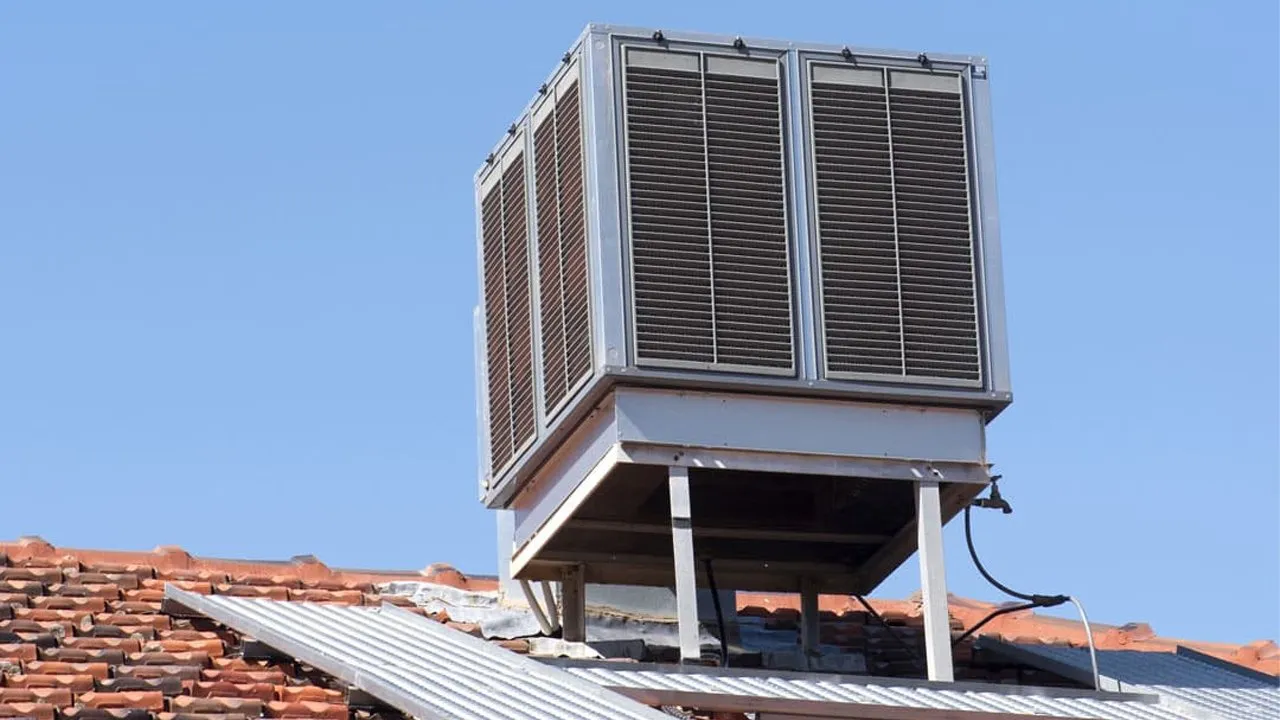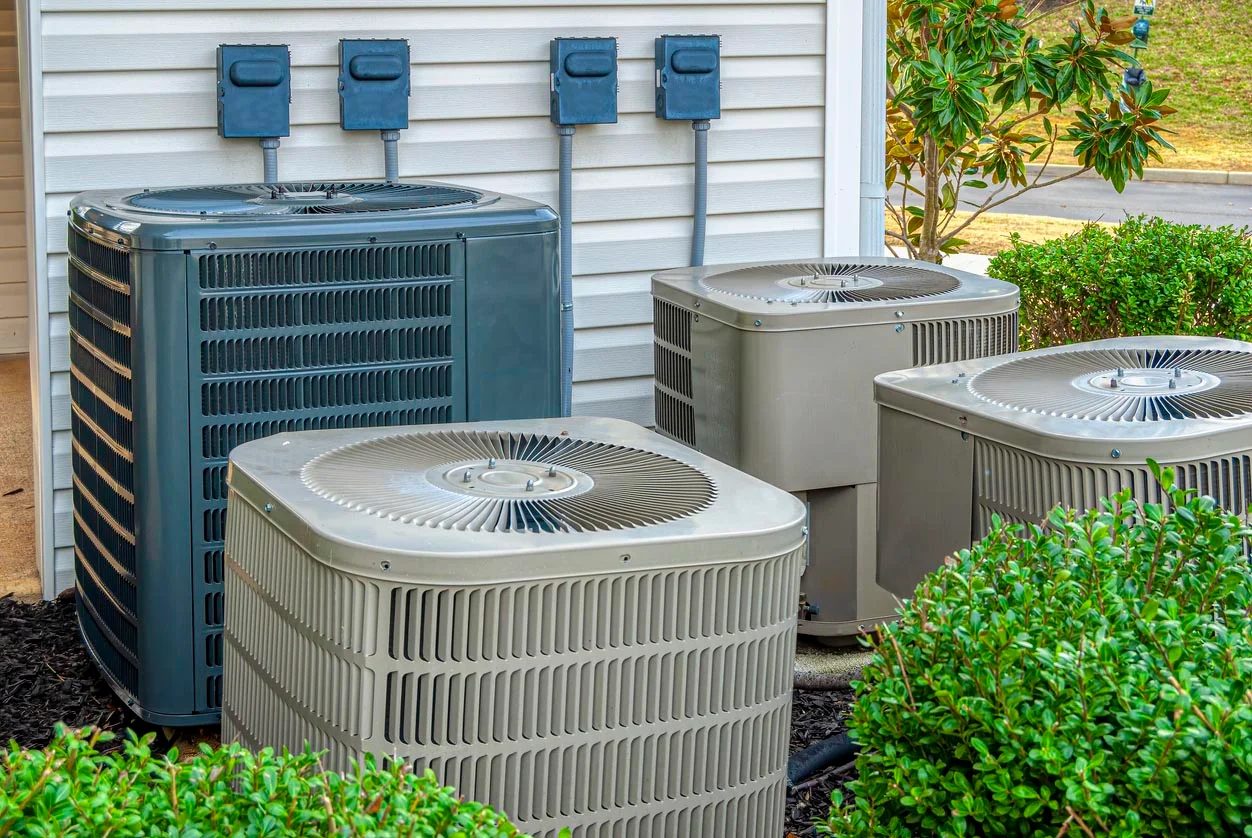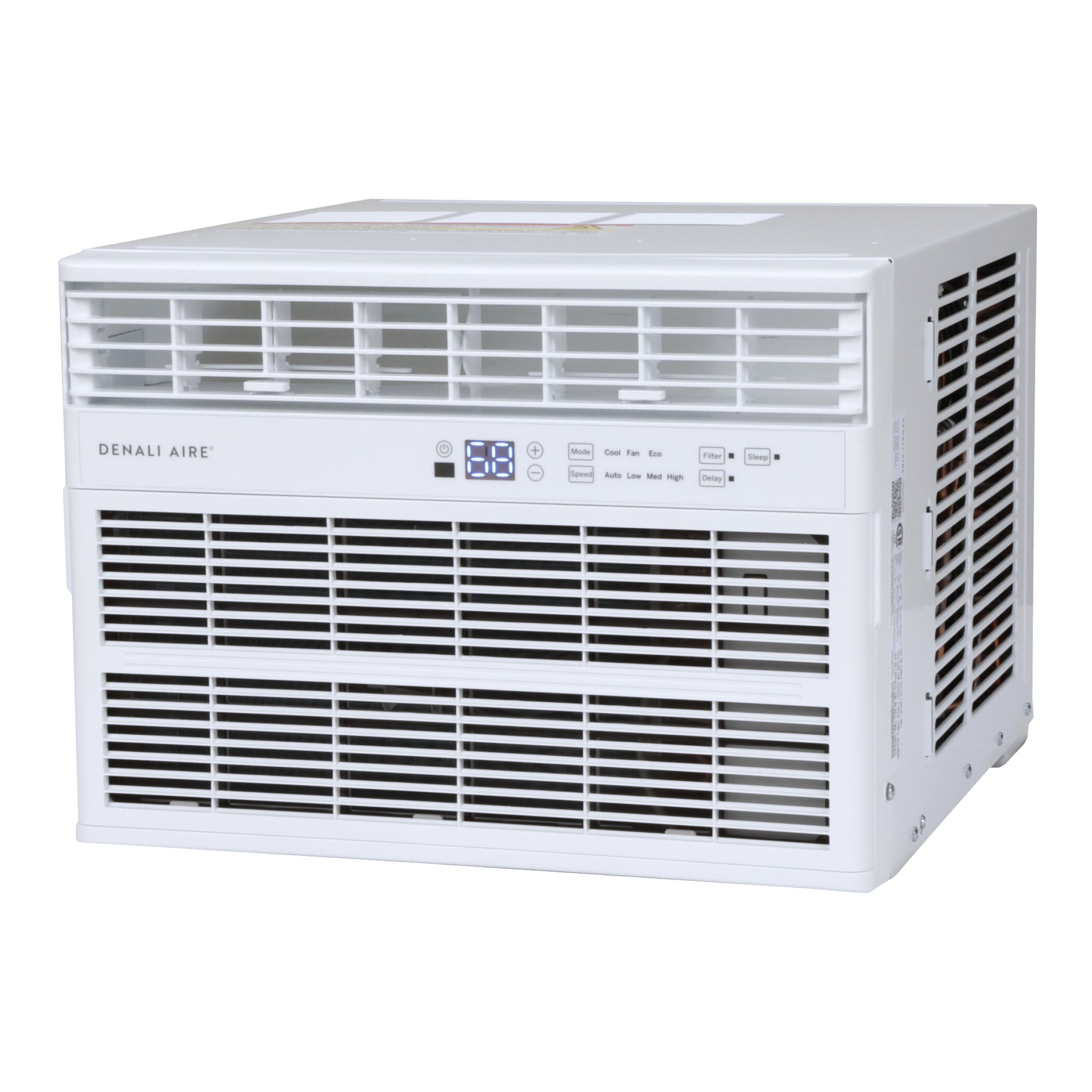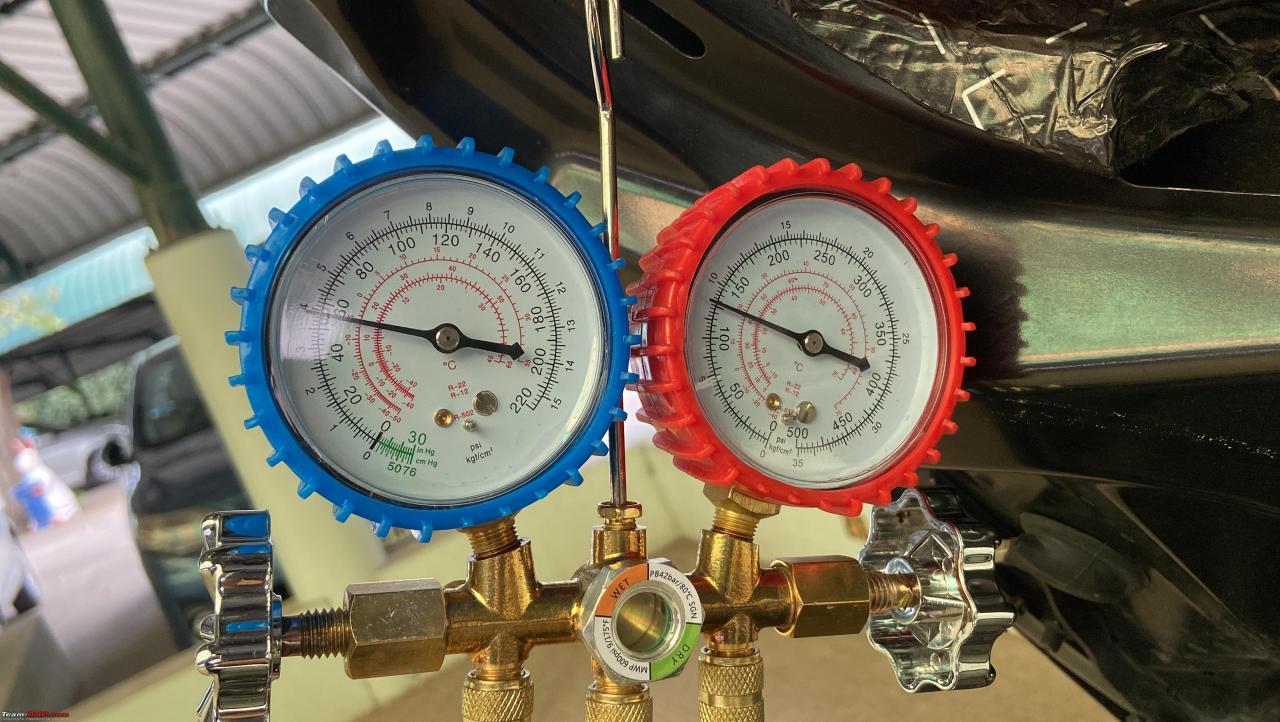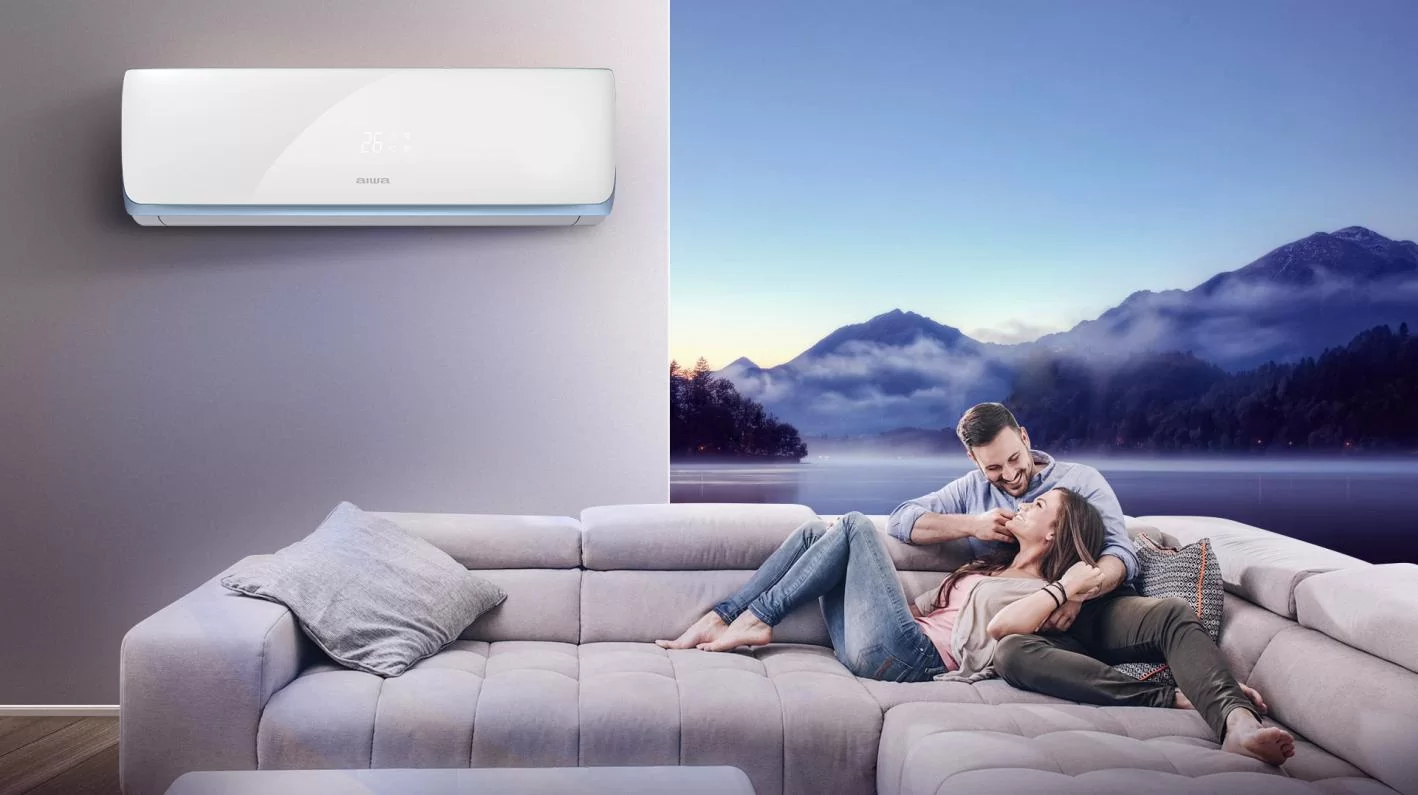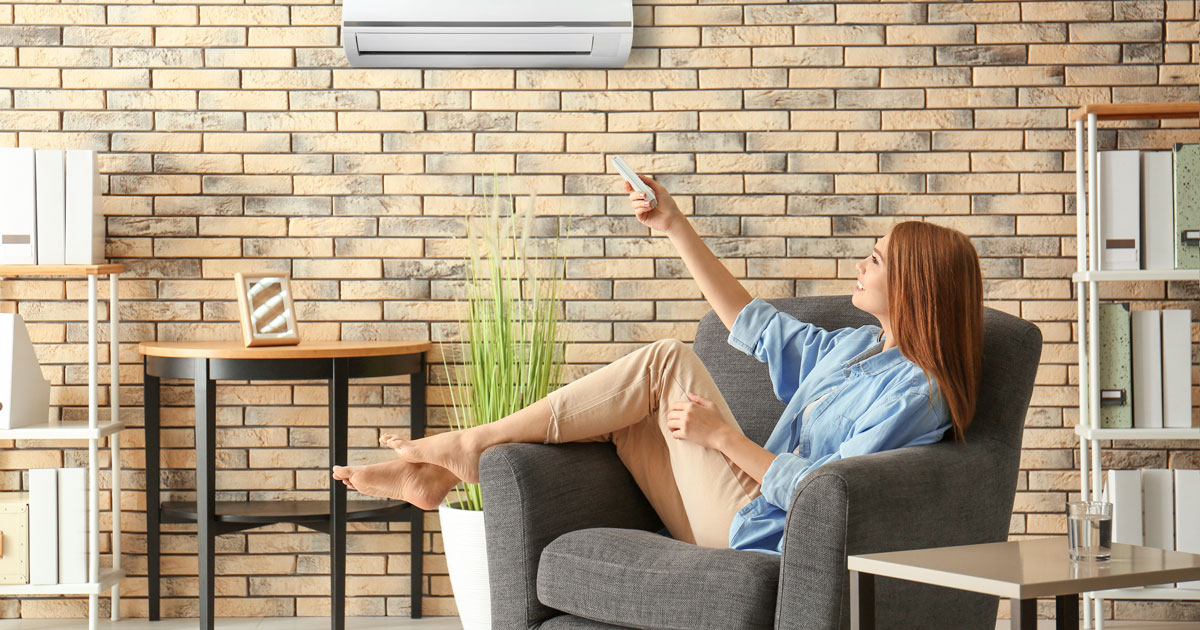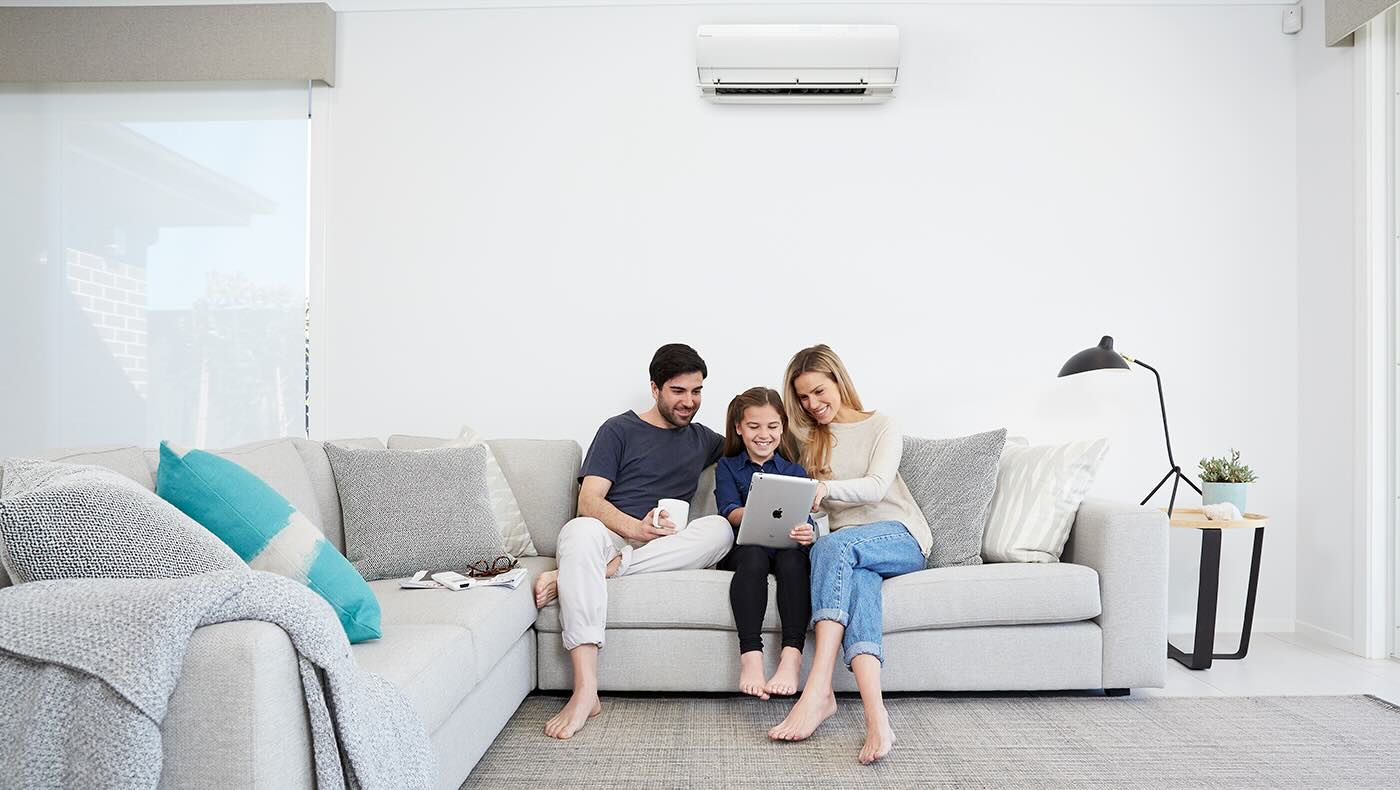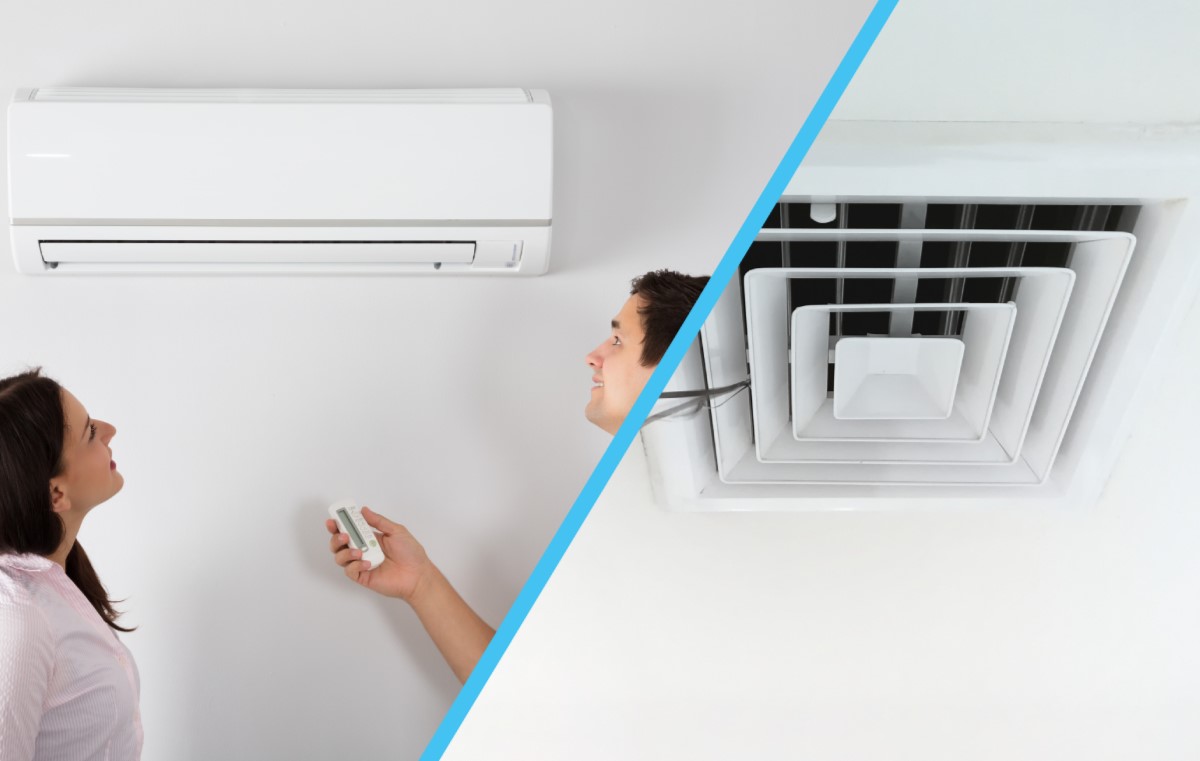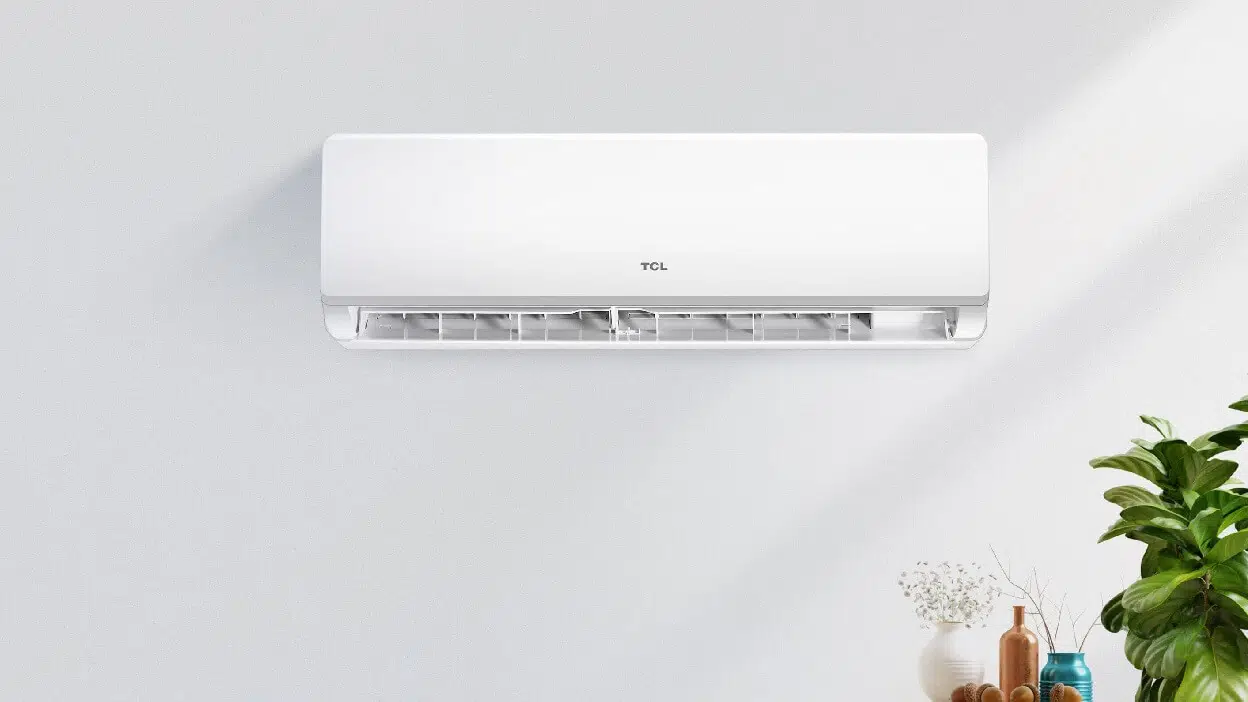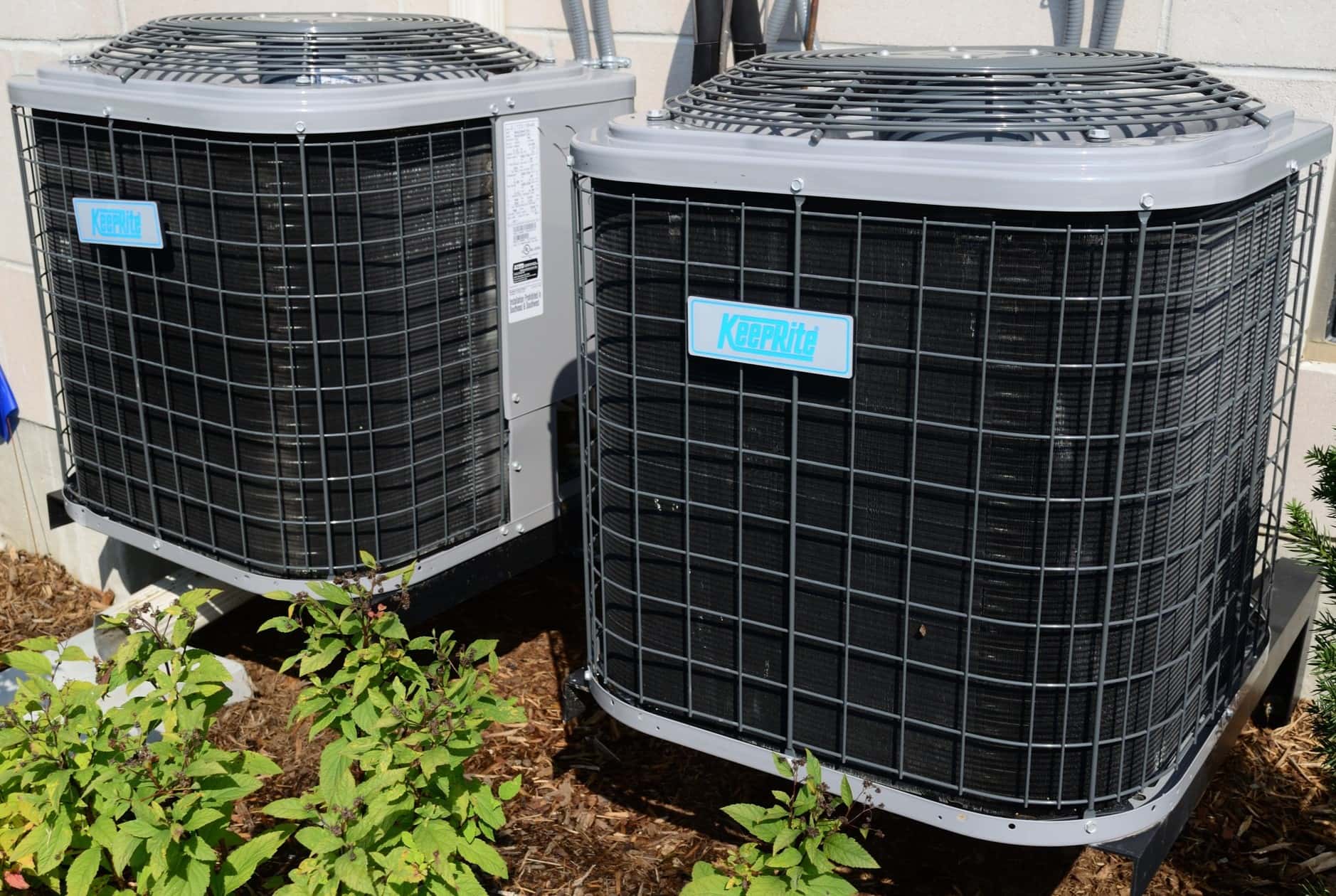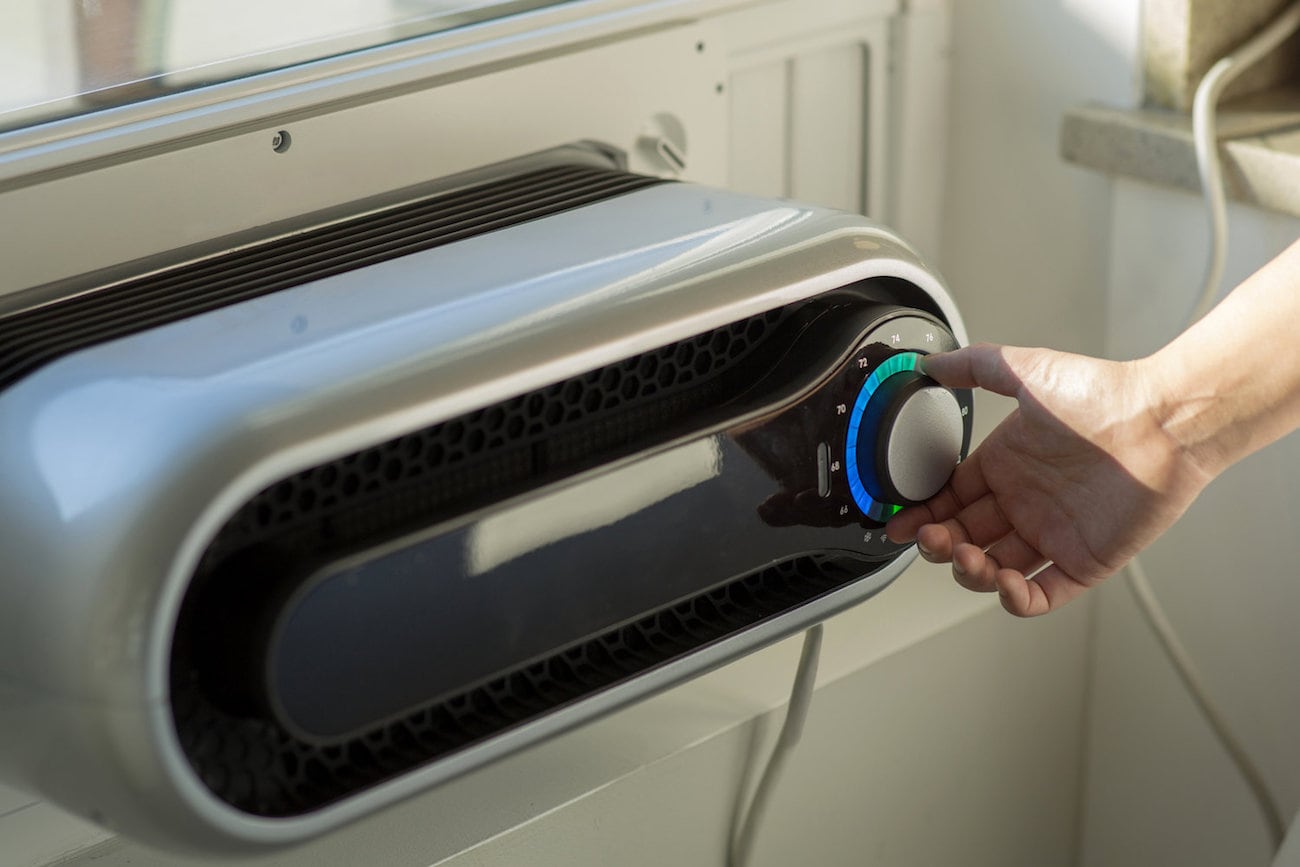Home>Home Maintenance>What Is The Best Air Conditioner
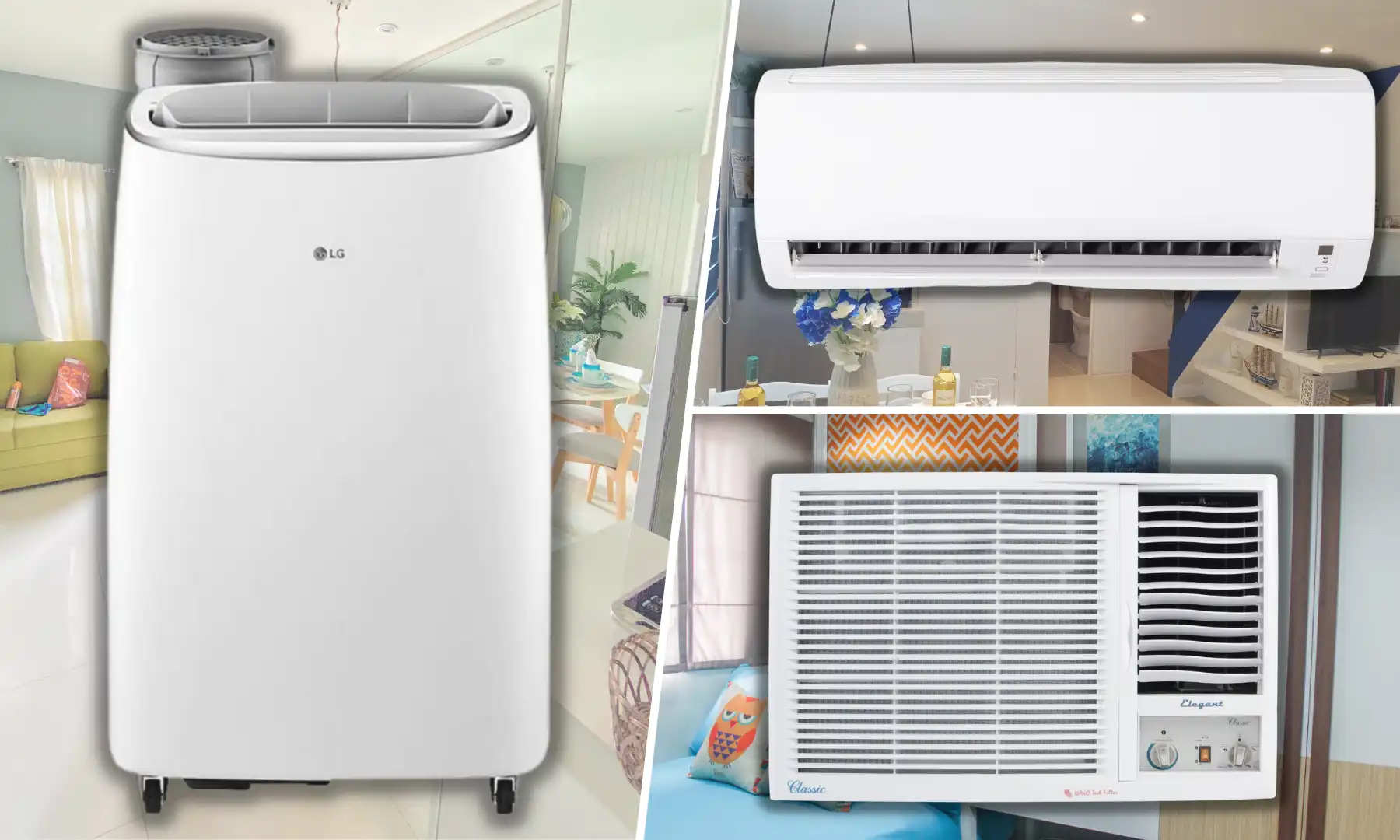

Home Maintenance
What Is The Best Air Conditioner
Modified: October 20, 2024
Discover the top-rated air conditioners for your home maintenance needs. Find the best air conditioner that fits your budget and keeps your home cool and comfortable.
(Many of the links in this article redirect to a specific reviewed product. Your purchase of these products through affiliate links helps to generate commission for Storables.com, at no extra cost. Learn more)
Introduction
Welcome to the world of air conditioners, where comfort meets convenience. As the temperatures rise, it’s essential to have a reliable air conditioning system that can keep your home cool and comfortable. But with so many options available, how do you choose the best air conditioner for your needs?
In this article, we will explore the factors to consider when selecting an air conditioner, the different types of air conditioners available, and important considerations such as energy efficiency, BTU calculation, noise levels, installation and maintenance, warranty, customer support, and affordability. By understanding these key aspects, you will be better equipped to make an informed decision about the best air conditioner for your home.
When it comes to selecting an air conditioner, there are several factors to consider:
- Your specific cooling needs
- The size of the area you need to cool
- Your budget
- Energy efficiency
- Noise levels
- Installation and maintenance requirements
- Warranty and customer support
Considering these factors will help you determine the most suitable air conditioner for your home. Now, let’s take a closer look at the different types of air conditioners available:
Key Takeaways:
- Choose the best air conditioner by considering factors like energy efficiency, noise levels, and warranty. Find the right balance between affordability and functionality for optimal comfort and long-term value.
- Central, window, portable, and ductless mini-split air conditioners offer different benefits. Prioritize your specific cooling needs and budget to make an informed decision.
Factors to Consider
Before diving into the different types of air conditioners, it’s important to understand the factors that should influence your decision-making process. By considering these factors, you can identify the air conditioner that best aligns with your cooling needs and preferences.
One of the first things to consider is the cooling capacity or BTU (British Thermal Units) of the air conditioner. The BTU rating indicates the amount of heat the air conditioner can remove from a room. The higher the BTU, the larger the space the air conditioner can effectively cool. To determine the appropriate BTU for your space, calculate the square footage of the area you need to cool and match it with the recommended BTU range.
Energy efficiency is also a crucial factor to consider. Air conditioners with higher energy efficiency ratings consume less electricity, saving you money in the long run. Look for units with a high Seasonal Energy Efficiency Ratio (SEER) rating, which indicates how efficiently the air conditioner uses electricity over an average cooling season.
Noise levels should also be taken into account, especially if you plan on installing the air conditioner in a bedroom or an area where noise sensitivity is a concern. Look for air conditioners with low noise levels, usually measured in decibels. This will ensure a more peaceful and undisturbed environment.
Installation and maintenance requirements are another important consideration. Some air conditioners require professional installation, while others can be easily installed without much hassle. Additionally, consider the maintenance requirements of the unit and ensure you will be able to access and clean the filters regularly to maintain optimal performance.
Warranty and customer support should not be overlooked. A reliable warranty demonstrates the manufacturer’s confidence in their product and provides you with peace of mind. Additionally, responsive and knowledgeable customer support can be invaluable if you encounter any issues or have questions regarding your air conditioner.
Lastly, affordability is an essential factor for many homeowners. Consider your budget and research the price range of the air conditioners that meet your requirements. Remember to balance cost with the features, quality, and performance you desire.
By taking these factors into account, you can narrow down your options and make an informed decision regarding the best air conditioner for your home. Now, let’s delve into the various types of air conditioners available on the market.
Types of Air Conditioners
When it comes to air conditioners, there are several types to choose from, each with its own advantages and characteristics. Understanding the different types can help you determine which one is best suited for your needs. Let’s explore the most common types of air conditioners:
- Central Air Conditioners: Central air conditioners are the most common and popular type of cooling system for larger homes or buildings. These systems operate by cooling the entire house through a duct network that distributes conditioned air to each room. Central air conditioners are powerful, efficient, and provide consistent cooling throughout the entire home. They require professional installation and are typically more expensive upfront, but they offer excellent cooling performance and energy efficiency.
- Window Air Conditioners: Window air conditioners, as the name suggests, are designed to fit in a window or a hole cut in an exterior wall. They are self-contained units that provide cooling for a single room or a small area. Window air conditioners are popular for their affordability, ease of installation, and versatility. They are a good option for smaller spaces and are relatively easy to remove and store during the colder months. However, they can be noisy and may obstruct the view from the window.
- Portable Air Conditioners: Portable air conditioners are similar to window units but are designed to be mobile. They come with wheels and can be moved from room to room as needed. Portable air conditioners are easy to install and suitable for spaces where permanent installation is not possible. They vent hot air through an exhaust hose that needs to be connected to a window or a nearby vent. While portable air conditioners offer flexibility, they are less efficient than central air conditioners and may require frequent emptying of the condensate tank.
- Ductless Mini-Split Air Conditioners: Ductless mini-split air conditioners are a popular choice for homes without existing ductwork or for room additions. They consist of an outdoor unit connected to one or more indoor units mounted on the wall or ceiling. The indoor units provide individualized cooling for specific zones or rooms. Ductless mini-split systems offer high energy efficiency, flexible installation options, and independent temperature control for each zone. They are a bit more expensive than window or portable units, but they offer quieter operation and reduced energy consumption.
Each type of air conditioner has its own advantages and is suited for different situations. Consider your cooling needs, available space, budget, and installation requirements when choosing the best type for your home. In the next sections, we will explore other important factors to consider when selecting an air conditioner, such as energy efficiency ratings, BTU calculation, noise levels, installation and maintenance, warranty, customer support, and affordability.
Central Air Conditioners
Central air conditioners are the go-to cooling option for larger homes or buildings that require efficient and consistent cooling throughout the entire space. These systems work by cooling the air in a central location and then distributing it through a network of ducts to various rooms or zones. Let’s take a closer look at the features and benefits of central air conditioners:
Installation: Central air conditioners require professional installation as they involve complex ductwork and connections to the electrical system. A licensed HVAC technician will assess your home’s cooling needs, recommend the appropriate size, install the outdoor unit, indoor unit (typically located in the basement or attic), and ensure proper airflow through the duct system. The installation process may vary based on the specific requirements and layout of your home.
Efficiency: Central air conditioners are known for their energy efficiency, especially when compared to other types of cooling systems. They are designed to cool the entire home, making them more efficient than individual room air conditioners. Additionally, advancements in technology have led to the development of high-efficiency central air conditioners that can save on energy costs and reduce environmental impact. Look for units with a high Seasonal Energy Efficiency Ratio (SEER) rating to ensure optimal efficiency.
Zoned Cooling: One of the significant advantages of central air conditioners is the ability to create zones or areas with individual temperature control. This is achieved by installing dampers in the ductwork that can direct airflow to specific areas. With zoned cooling, you can set different temperatures for different rooms, allowing for personalized comfort and energy savings. Zoned cooling is particularly beneficial for homes with varying cooling needs throughout different areas of the house.
Noise Levels: Central air conditioners tend to operate quietly, with the noisiest components located outdoors. This ensures a peaceful indoor environment without the constant hum or mechanical noises that may be present with window or portable air conditioners.
Aesthetic Appeal: With a central air conditioner, there are no bulky units protruding from windows or taking up floor space. The only visible components are the discreetly placed supply and return vents in each room, providing a more aesthetically pleasing and unobtrusive cooling solution.
Overall Home Value: Installing a central air conditioner can enhance the value of your home. Buyers tend to value homes with central air conditioning systems, as they provide comfort and convenience, especially in areas with long and hot summers.
While central air conditioners offer numerous advantages, it’s important to note that they come with a higher upfront cost compared to other types of air conditioning units. However, the long-term energy savings and comfort they provide make them a worthwhile investment for many homeowners.
It’s important to properly size and maintain your central air conditioning system to maximize its efficiency and lifespan. Regular maintenance, such as cleaning or replacing filters, checking refrigerant levels, and inspecting the ductwork, is recommended to ensure optimal performance.
Now that you understand the benefits of central air conditioners, let’s explore other types of air conditioners and factors to consider when selecting the best cooling system for your home.
Window Air Conditioners
Window air conditioners are a popular choice for cooling individual rooms or small spaces. As the name suggests, they are designed to fit in a window or a hole cut in an exterior wall. Let’s explore the features and benefits of window air conditioners:
Installation: Window air conditioners are relatively easy to install and do not require professional assistance. They can be mounted in most standard-sized windows without any major modifications. Simply place the unit in the window opening, secure it, and extend the side panels to fill any gaps. It’s essential to follow the manufacturer’s instructions and ensure a proper seal to prevent warm air infiltration.
Cooling Capacity: Window air conditioners are available in various sizes and cooling capacities, measured in British Thermal Units (BTUs). The appropriate cooling capacity depends on the size of the room you plan to cool. It’s essential to choose a unit with the right BTU rating to adequately cool the space without overloading or inefficiently running the air conditioner.
Affordability: Window air conditioners are generally more affordable compared to other types of cooling systems. They offer a cost-effective cooling solution, especially for those on a tight budget or those who only need to cool a single room or small area. Additionally, their installation and maintenance costs are relatively low.
Energy Efficiency: Window air conditioners have improved in terms of energy efficiency over the years. While they may not be as efficient as central air conditioners or ductless mini-split systems, many models now come with energy-saving features such as programmable timers, adjustable thermostat settings, and sleep modes. Look for units with a high Energy Efficiency Ratio (EER) or ENERGY STAR® certification to ensure optimal energy efficiency.
Compact and Space-Saving: Window air conditioners are designed to be compact and space-saving. They fit snugly in the window frame, taking up minimal interior space. This is particularly beneficial for those living in apartments, small homes, or rooms with limited floor space.
Easy Removal and Storage: Window air conditioners can be easily removed and stored during the colder months or when not in use. This flexibility allows you to enjoy the benefits of cooling during the summer without obstructing the view or taking up valuable window or floor space throughout the year.
Noise Levels: While window air conditioners can generate some noise during operation, modern models are designed to be quieter than older units. Look for units that offer low noise levels or have noise-reducing features, especially if you plan on installing the air conditioner in a bedroom or a space where noise sensitivity is a concern.
It’s important to note that window air conditioners are designed to cool a specific room or area. They may not be suitable for larger homes or multiple rooms unless you install multiple units. Additionally, their efficiency can vary depending on the insulation of the room and the outdoor climate.
Regular maintenance is necessary to keep your window air conditioner running efficiently. Be sure to clean or replace the air filter regularly to maintain good airflow, clean the exterior and interior components, and check for any signs of wear or damage.
Now that you have a better understanding of window air conditioners, let’s explore other types of air conditioners and important factors to consider when selecting the best cooling system for your home.
Read more: What Are The Parts Of An Air Conditioner
Portable Air Conditioners
Portable air conditioners offer a flexible and convenient cooling solution for homes or rooms where permanent installation is not feasible or necessary. These self-contained units are designed to be mobile and can be moved from room to room as needed. Let’s delve into the features and benefits of portable air conditioners:
Installation: One of the key advantages of portable air conditioners is their easy installation. Unlike central or window units, portable air conditioners do not require complex installation or modifications. Simply position the unit near a window or an opening, connect the exhaust hose to a window kit or an exhaust vent, and plug it into a standard electrical outlet. The flexibility of installation allows you to cool different rooms or areas within your home as required.
Flexibility and Portability: Portable air conditioners are designed to be mobile, making them a versatile cooling option. They come with wheels that allow for easy movement from one room to another. This flexibility is especially useful if you want to cool different rooms during the day or if you live in a rental property and cannot install a permanent cooling system.
Cooling Capacity: Portable air conditioners are available in various cooling capacities, typically measured in BTUs (British Thermal Units). It’s crucial to select a unit with the appropriate BTU rating for the size of the room or area you intend to cool. Undersized units may struggle to cool the space adequately, while oversized units may cycle on and off more frequently, reducing overall efficiency.
No Permanent Installation: Unlike central or window air conditioners, portable units do not require modifications to your home. They do not need to be mounted in a window or require a dedicated space in the wall. This makes portable air conditioners an ideal option for renters or those who prefer not to make permanent changes to their living space.
Noise Levels: While portable air conditioners can generate some noise during operation, many models are designed with noise-reducing features. Look for units with low noise levels or multiple fan speed options to find a suitable balance between cooling performance and noise reduction. Additionally, some portable units come with sleep modes that operate at a quieter level during nighttime use.
Ventilation Requirements: Portable air conditioners extract hot air from the room through an exhaust hose or vent. This means you will need to position the unit near a window, an exhaust vent, or another suitable opening to vent the hot air outside. Some portable air conditioners come with a window kit or an adjustable venting panel to facilitate easy installation and proper ventilation. Be sure to follow the manufacturer’s instructions for venting to maximize efficiency.
While portable air conditioners offer flexibility, there are a few considerations to keep in mind. Portable units tend to be less efficient than central air conditioners or ductless mini-split systems. Additionally, they may require regular maintenance tasks such as emptying the condensate tank or cleaning the air filters to maintain optimal performance.
Now that you are familiar with portable air conditioners, let’s explore other types of air conditioners and important factors to consider when selecting the best cooling system for your home.
Ductless Mini-Split Air Conditioners
Ductless mini-split air conditioners offer a unique and versatile cooling solution for homes without existing ductwork or for specific zones within a larger space. These systems consist of an outdoor unit and one or more indoor units, allowing for individualized temperature control. Let’s explore the features and benefits of ductless mini-split air conditioners:
Installation: Ductless mini-split systems require professional installation to ensure proper sizing, placement, and connection of the outdoor and indoor units. The outdoor unit is typically mounted on an exterior wall or placed on a concrete pad, while the indoor units are mounted on walls or ceilings. The two units are connected by refrigerant lines and electrical wiring. The installation process is less invasive compared to central air conditioners since there is no need for ductwork, making it a suitable option for older homes or spaces with limited accessibility.
Zoned Cooling: One of the significant advantages of ductless mini-split systems is the ability to create zones with individual temperature control. Each indoor unit is independently controlled, allowing for personalized comfort in specific areas or rooms. This zoned cooling capability eliminates the need to cool unused areas, saving energy and enabling personalized temperature preferences for each occupant.
Energy Efficiency: Ductless mini-split air conditioners are known for their energy efficiency. Each indoor unit operates independently, eliminating the energy losses associated with ductwork in central air conditioners. Additionally, many models are equipped with energy-saving features such as programmable timers, sleep modes, and motion sensors that adjust cooling output based on occupancy. Look for units with a high Seasonal Energy Efficiency Ratio (SEER) rating to ensure optimal energy savings.
Quiet Operation: Ductless mini-splits are designed to operate quietly, with the noisiest components located outdoors. This ensures a comfortable and peaceful indoor environment without disruptive noise. The indoor units offer low noise levels, making them suitable for use in bedrooms, offices, or other spaces where noise sensitivity is a concern.
Aesthetic Appeal: Ductless mini-split systems offer a sleek and modern aesthetic. The indoor units are typically slim and unobtrusive, blending seamlessly with the surrounding decor. This makes them an excellent choice for homeowners who prefer a discreet cooling solution without compromising on style.
Improved Air Quality: Ductless mini-split systems come with advanced filtration systems that help improve indoor air quality. They can capture dust, pollen, pet dander, and other airborne particles, providing cleaner and healthier air for you and your family to breathe.
While ductless mini-split systems offer numerous benefits, they do come with a higher upfront cost compared to window or portable air conditioners. However, the long-term energy savings, zoned cooling capabilities, and improved comfort make them a worthwhile investment for many homeowners.
Regular maintenance, such as cleaning or replacing air filters and checking refrigerant levels, is necessary to ensure efficient operation. It is also important to schedule periodic professional inspections to catch any potential issues and ensure the system continues to perform optimally.
Now that you are acquainted with ductless mini-split air conditioners, let’s explore other types of cooling systems and important factors to consider when selecting the best option for your home.
When choosing the best air conditioner, consider the size of the room, energy efficiency, and noise level. Look for a model with a high Energy Star rating for cost savings.
Energy Efficiency Ratings
When choosing an air conditioner, it’s important to consider its energy efficiency rating. Energy efficiency not only helps reduce energy consumption but also lowers utility bills and reduces environmental impact. Understanding the different energy efficiency ratings will guide you in selecting an air conditioner that aligns with your sustainability goals and saves you money in the long run. Let’s explore the key energy efficiency ratings you should be familiar with:
Seasonal Energy Efficiency Ratio (SEER): SEER is a rating system used to measure the cooling efficiency of air conditioners and heat pumps. It represents the ratio of the cooling output provided by the unit over an entire cooling season, divided by the energy consumed in watt-hours. The higher the SEER rating, the more energy-efficient the air conditioner. In many regions, the minimum SEER rating for new air conditioners is regulated by government standards.
Energy Efficiency Ratio (EER): EER is similar to SEER but focuses on the energy efficiency of an air conditioner at a specific moment in time, typically at 95°F outdoor temperature. EER is calculated by dividing the cooling output (in BTUs) by the power input (in watts) at a given moment. A higher EER rating indicates better energy efficiency, especially in hotter climates where air conditioners need to work harder to cool the space.
Coefficient of Performance (COP): COP is used to measure the heating efficiency of heat pumps. It represents the ratio of the heat output (in BTUs) to the energy input (in watt-hours). The higher the COP, the more efficient the heat pump is at providing heating. COP is particularly important in regions with colder climates where heating requirements are higher.
Air-Conditioning, Heating, and Refrigeration Institute (AHRI) Certification: The AHRI is an independent third-party organization that certifies and verifies the performance of HVAC equipment, including air conditioners. AHRI certification ensures that the manufacturer’s claims about efficiency and performance have been tested and verified by an unbiased organization. Look for air conditioners with AHRI certification to ensure accurate and reliable information about energy efficiency ratings.
When comparing different air conditioner models, consider the energy efficiency ratings in relation to the specific cooling needs of your home. A higher SEER rating or EER rating may result in higher upfront costs, but it can lead to significant long-term energy savings, lower utility bills, and a reduced environmental footprint. It’s important to strike a balance between energy efficiency and affordability based on your budget and anticipated usage.
Many air conditioners now come with additional energy-saving features, such as programmable timers, sleep modes, or smart controls, that further optimize energy usage. These features allow you to schedule and automate cooling based on your preferences and occupancy patterns, helping reduce energy waste and improve overall efficiency.
By understanding and considering energy efficiency ratings, you can make an informed decision when selecting an air conditioner that aligns with your sustainability goals, provides optimal cooling, and helps save money in the long run. Now, let’s explore other important factors to consider when choosing the best air conditioner for your home.
BTU Calculation
BTU (British Thermal Units) is a unit of measurement used to quantify the cooling capacity of an air conditioner. Calculating the appropriate BTU for your space is essential to ensure that your air conditioner can effectively cool the area. Here’s how to calculate the BTU needed for your cooling needs:
Step 1: Determine the square footage: Measure the length and width of the room or area you plan to cool. Multiply these dimensions to calculate the square footage. For example, if a room is 10 feet wide and 12 feet long, the square footage would be 120 square feet.
Step 2: Consider the factors that affect BTU calculation: Several factors can affect the BTU calculation for your specific space. These include:
- Insulation: Is the room well-insulated? Good insulation helps retain cool air and reduces the cooling load. For poorly insulated spaces or those with significant heat gain, you may need a higher BTU rating.
- Sun Exposure: Does the room receive direct sunlight? Sunlight can significantly increase the temperature in a space, requiring a higher cooling capacity.
- Number of Occupants: Consider the number of people regularly using the room. The human body generates heat, and more occupants will increase the cooling load.
- Appliances and Electronics: Are there many heat-generating appliances or electronics in the room? These devices contribute to the heat load that the air conditioner needs to handle.
- Room Function: The function of the room can also impact the cooling load. Kitchens, for example, tend to generate more heat due to cooking appliances and activities.
Step 3: Use a BTU calculation formula: Once you have considered the factors above, you can use a BTU calculation formula to estimate the cooling capacity required. A general rule of thumb is to multiply the square footage of the space by a predetermined value. For example:
- For well-insulated spaces, use 20 BTUs per square foot.
- For average insulation, use 25 BTUs per square foot.
- For poorly insulated spaces or areas with high heat gain, use 30 BTUs per square foot.
Using the formula, if you have a 120 square feet room with average insulation, the BTU calculation would be 120 (square feet) x 25 (BTUs per square foot) = 3,000 BTUs.
Remember, this is just a general guideline. Other factors specific to your space may need to be considered, such as ceiling height or windows. It’s always a good idea to consult with an HVAC professional for a more accurate BTU calculation.
Calculating the appropriate BTU ensures that your air conditioner has the cooling capacity required to maintain a comfortable temperature in your space. Oversized units may cycle on and off frequently, wasting energy, while undersized units may struggle to cool effectively. By finding the right balance, you can maximize energy efficiency and achieve optimal cooling performance.
Now that you have calculated the estimated BTU for your space, let’s continue exploring other important factors to consider when selecting the best air conditioner for your home.
Read more: What Is An Air Conditioner Coil
Noise Levels
Noise levels can significantly impact your comfort and overall experience with an air conditioner. When selecting an air conditioner, it’s important to consider its noise levels, especially if you plan to install it in a bedroom, living room, or any other space where noise may be a concern. Let’s explore the factors related to noise levels in air conditioners:
Decibel (dB) Rating: Noise levels are typically measured in decibels (dB). The dB rating indicates the intensity of the sound produced by the air conditioner. The lower the decibel number, the quieter the unit. Air conditioners with lower dB ratings tend to operate more quietly, creating a more peaceful indoor environment.
Indoor and Outdoor Components: Air conditioners consist of both indoor and outdoor units. The noise produced by these components can vary. In general, the outdoor unit tends to produce more noise since it houses the compressor and condenser fan, which are responsible for the cooling process. The indoor unit may produce some noise as well, primarily from the fan and airflow, but it is often quieter than the outdoor unit.
Noise-Reducing Features: Many air conditioner manufacturers incorporate noise-reducing features into their units to minimize operational noise. These features can include advanced fan designs, sound-absorbing materials, and vibration isolation techniques. Some units offer multiple fan speed options, allowing you to adjust the speed based on your desired balance between cooling performance and noise reduction.
Sleep Modes: Some air conditioners come with sleep modes specifically designed for nighttime use. Sleep modes operate the unit at a lower fan speed and noise level, ensuring a quieter environment for sleeping while maintaining a comfortable temperature. If noise during nighttime use is a concern, look for air conditioners with sleep mode functionality.
Customer Reviews: Reading customer reviews and feedback can provide valuable insights into the noise levels of specific air conditioner models. Customers often share their experiences and opinions about noise levels, allowing you to make a more informed decision. Look for air conditioners that receive positive reviews regarding quiet operation and low noise levels.
It’s important to note that some noise is inevitable during the operation of an air conditioner. The intensity of the noise can vary based on the specific model, settings, and overall environment. Additionally, certain factors, such as improper installation or lack of maintenance, can contribute to increased noise levels. Regular maintenance, such as cleaning or replacing filters, can help keep the air conditioner running smoothly and reduce noise-related issues.
When comparing air conditioner models, consider your specific noise sensitivity and the intended location of the air conditioner. If noise is a significant concern, look for units with lower dB ratings or noise-reducing features. Keep in mind that extremely low noise levels may come at a higher cost or with reduced cooling capacity, so finding the right balance between noise levels and cooling performance is crucial.
By taking noise levels into account, you can ensure a more peaceful and enjoyable indoor environment while benefiting from the comfort provided by your air conditioner. Now, let’s continue exploring other important factors to consider when selecting the best air conditioner for your home.
Installation and Maintenance
The installation and maintenance of your air conditioner are crucial factors to consider for its optimal performance and longevity. Proper installation ensures efficient operation, while regular maintenance helps keep the unit running smoothly. Let’s explore the importance of installation and maintenance for your air conditioner:
Installation: Proper installation of an air conditioner is essential to ensure optimal performance and energy efficiency. Improper installation can result in reduced cooling capacity, increased energy consumption, and potential damage to the unit. It’s recommended to hire a professional HVAC technician to handle the installation process, especially for complex systems like central air conditioners or ductless mini-splits. Qualified technicians have the knowledge and experience to properly size, position, and connect the unit, ensuring that it operates at its full potential.
Placement: The placement of your air conditioner can impact its overall performance. When installing window or portable units, ensure that they are positioned near a suitable window or opening for proper ventilation. For central air conditioners or ductless mini-splits, proper placement of the outdoor and indoor units is crucial for efficient airflow and optimal cooling distribution. Pay attention to factors like shading, airflow obstructions, and proximity to noise-sensitive areas when determining the location for installation.
Maintenance: Regular maintenance is necessary to keep your air conditioner running smoothly and efficiently. Here are some essential maintenance tasks to consider:
- Cleaning or Replacing Air Filters: Air filters trap dust, dirt, and other particles, preventing them from entering the system. Dirty filters can restrict airflow and reduce cooling efficiency. Clean or replace the air filters regularly according to the manufacturer’s guidelines to maintain optimal airflow and indoor air quality.
- Cleaning Coils and Fins: Over time, the evaporator and condenser coils, as well as the fins, can accumulate dirt, dust, and debris. This buildup reduces airflow and hampers heat transfer, leading to decreased cooling performance. Regularly clean the coils and fins to remove any buildup and ensure efficient operation.
- Checking and Cleaning Condensate Drain: Air conditioners produce condensation as they cool the air. This condensation needs to be properly drained to prevent leaks or damage. Regularly check and clean the condensate drain to ensure it’s free from blockages and functioning correctly.
- Inspecting Refrigerant Levels: Low refrigerant levels can impair cooling performance and potentially damage the compressor. Have a professional inspect and replenish refrigerant levels if necessary. Refrigerant handling should only be done by licensed technicians due to environmental regulations and safety concerns.
- Inspecting Ductwork: If you have a central air conditioning system, regularly inspect the ductwork for any leaks, cracks, or insulation damage. Duct leaks can lead to reduced cooling efficiency and wasted energy. Seal any leaks or have them repaired promptly for optimal performance.
Following the manufacturer’s recommendations and maintenance schedule is important to preserve the warranty and keep your air conditioner in good working condition. Neglecting maintenance tasks can lead to decreased efficiency, higher energy costs, and potential breakdowns.
Additionally, it’s recommended to schedule periodic professional inspections and tune-ups for your air conditioner. HVAC technicians can identify any potential issues, clean and lubricate parts, and ensure that the system is operating at peak performance. Regular maintenance not only extends the life of your air conditioner but also helps you maximize its energy efficiency and cooling capacity.
By paying attention to proper installation and regular maintenance, you can enjoy reliable and efficient cooling from your air conditioner for years to come. Now, let’s continue exploring other important factors to consider when selecting the best air conditioner for your home.
Warranty and Customer Support
When purchasing an air conditioner, it’s important to consider the warranty and customer support provided by the manufacturer. A reliable warranty and responsive customer support can give you peace of mind and assurance in case any issues arise with your unit. Let’s explore the significance of warranty and customer support for your air conditioner purchase:
Warranty: A warranty is a manufacturer’s guarantee that covers repairs or replacements for a specified period of time. It offers protection against defects in materials or workmanship that may affect the performance or functionality of your air conditioner. Warranties vary among manufacturers, so it’s crucial to review the details and understand the coverage provided.
Length of Warranty: The length of the warranty is an important consideration. Longer warranties often indicate the manufacturer’s confidence in the product’s quality and durability. Some air conditioners come with standard warranties of one to three years, while others may offer extended warranties of five years or more. Additionally, certain components of the air conditioner, such as the compressor, may have separate warranty coverage, as they are critical and expensive to replace.
What’s Included in the Warranty: Review the warranty terms to understand what is covered. This typically includes repairs or replacements for defective parts or faulty workmanship. Ensure that the warranty covers both the indoor and outdoor units, as well as essential components like the compressor and condenser. Some warranties may also cover the cost of labor for qualified repairs. It’s important to note that warranties typically do not cover damage caused by improper installation, lack of maintenance, or misuse of the unit.
Manufacturer Reputation: Consider the reputation of the manufacturer when evaluating the warranty. Manufacturers with a good reputation for product quality and customer service are more likely to honor their warranty commitments. Research customer reviews, industry ratings, and awards to gain insights into the reputation of the manufacturer before making your purchase.
Customer Support: Customer support is another important aspect to consider. It encompasses the manufacturer’s responsiveness, accessibility, and willingness to assist customers with inquiries, troubleshooting, or warranty claims. Look for manufacturers that offer reliable customer support channels, such as phone, email, or online chat. Prompt and knowledgeable customer support can make the process of troubleshooting or filing warranty claims more efficient and convenient.
Authorized Service Centers: Check if the manufacturer has authorized service centers or a network of qualified service technicians in your area. A widespread network of service centers ensures that you can easily access professional assistance if needed. Local service centers can provide timely repairs and replacements, minimizing downtime and inconvenience.
Remember to register your air conditioner with the manufacturer to activate the warranty. Keep a copy of the warranty documentation, purchase receipts, and any service records for future reference, as they may be required when filing a warranty claim.
Considering the warranty and customer support provided by the manufacturer is essential for a positive ownership experience with your air conditioner. A reliable warranty and responsive customer support can provide reassurance and assistance when you need them the most. Now, let’s continue exploring other important factors to consider when selecting the best air conditioner for your home.
Price Range and Affordability
Price range and affordability are important factors to consider when selecting an air conditioner. Determining your budget and understanding the price range of different units will help you find an option that meets both your cooling needs and financial constraints. Let’s explore how to evaluate the price range and affordability of air conditioners:
Establishing a Budget: Start by establishing a budget for your air conditioner purchase. Consider how much you are willing to spend and the long-term value you expect from your investment. Your budget will guide you in narrowing down your options and finding a unit that meets your needs without breaking the bank.
Factors Influencing Price: Several factors can influence the price of an air conditioner:
- Cooling Capacity: The cooling capacity, measured in BTUs (British Thermal Units), is a significant factor affecting the price. Higher BTU units that can cool larger areas or multiple rooms tend to be more expensive than units with lower BTU ratings.
- Type of Air Conditioner: The type of air conditioner can also impact the pricing. Central air conditioners, for example, are typically more expensive due to their larger scale and complexity of installation. Window air conditioners and portable units are generally more affordable options, while ductless mini-split systems fall in between.
- Energy Efficiency: Energy-efficient models tend to have a higher upfront cost but can lead to long-term energy savings and reduced utility bills. Units with higher SEER (Seasonal Energy Efficiency Ratio) or EER (Energy Efficiency Ratio) ratings often come at a premium price.
- Features and Technology: Air conditioners with advanced features, such as programmable timers, smart controls, or temperature sensors, may have higher price points. Consider which features are essential for your needs and prioritize accordingly.
- Brand Name and Reputation: Air conditioners from well-known, reputable brands often come with a higher price tag. These brands may have a history of quality and reliability, but it’s essential to evaluate the features and benefits provided by the unit rather than relying solely on the brand name.
Long-Term Considerations: While price is an important consideration, it’s important to also evaluate the long-term value and savings offered by the air conditioner. Energy-efficient models, despite having a higher upfront cost, can result in significant energy savings over the lifespan of the unit. Be sure to consider the energy efficiency ratings, estimated annual energy consumption, and potential utility savings when assessing the overall affordability of the air conditioner.
Comparing Prices and Researching Options: Research different air conditioner models and compare prices from multiple retailers or suppliers. Look for discounts, promotions, or rebates that may be available. It’s important to note that the lowest-priced unit may not always provide the best value in terms of cooling performance, energy efficiency, and durability. Aim for a balance between affordability and functionality to ensure you are making a wise investment.
Considerations Beyond Price: While price is an important aspect, it shouldn’t be the sole determining factor in your decision. Consider other factors, such as cooling capacity, energy efficiency, noise levels, warranty, and customer support, to ensure that you choose an air conditioner that meets your requirements and provides long-term satisfaction.
By establishing a budget, evaluating factors that influence price, and considering the long-term value, you can find an air conditioner that fits your needs and provides optimal cooling within your affordability range. Now, let’s wrap up and summarize the important factors we have discussed in selecting the best air conditioner for your home.
Read more: What Is EER In An Air Conditioner
Conclusion
Choosing the best air conditioner for your home involves careful consideration of various factors. By taking into account your specific cooling needs, understanding the different types of air conditioners available, and considering important factors such as energy efficiency, BTU calculation, noise levels, installation and maintenance requirements, warranty, customer support, and affordability, you can make an informed decision that will provide optimal comfort and convenience.
Central air conditioners offer powerful and efficient cooling for larger homes, while window air conditioners provide a cost-effective solution for cooling individual rooms. Portable air conditioners offer mobility and flexibility, making them ideal for spaces where permanent installation is not possible. Ductless mini-split systems provide zoned cooling and high energy efficiency, making them suitable for homes without existing ductwork or specific zones within a larger space.
Energy efficiency ratings, such as SEER or EER, help you choose a unit that minimizes energy consumption and lowers utility bills. Calculating the appropriate BTU for your space ensures that the air conditioner can effectively cool the area without straining the unit. Considering noise levels allows you to create a peaceful indoor environment while enjoying the benefits of cooling. Proper installation by a professional and regular maintenance help in maximizing performance and longevity.
Warranty and customer support are crucial for your peace of mind and assistance in case of any issues with your air conditioner. Understanding the price range and affordability helps you find a unit that meets your needs and budget. By evaluating these factors and finding the right balance, you can select an air conditioner that provides efficient cooling, optimal comfort, and long-term value.
When making your final decision, it’s important to prioritize the factors that are most important to you and your unique situation. Every home and homeowner has different needs and preferences, so consider what matters most to you in terms of cooling performance, energy efficiency, noise levels, and overall affordability.
We hope this comprehensive guide has provided valuable insights and guidance in selecting the best air conditioner for your home. Remember to review specifications, read customer reviews, and consult with HVAC professionals for personalized advice. With the right air conditioner, you can create a comfortable and enjoyable indoor environment, no matter how hot it gets outside.
Frequently Asked Questions about What Is The Best Air Conditioner
Was this page helpful?
At Storables.com, we guarantee accurate and reliable information. Our content, validated by Expert Board Contributors, is crafted following stringent Editorial Policies. We're committed to providing you with well-researched, expert-backed insights for all your informational needs.
